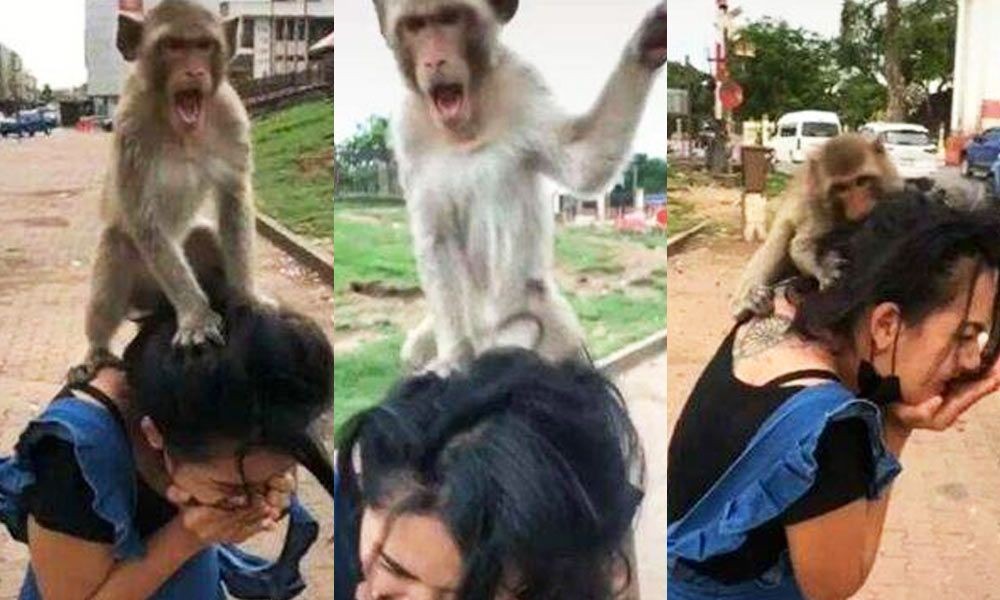
Lopburi, Famous for Its Monkey Population, Faces Challenges: Located approximately 155km north of Bangkok, Lopburi is Thailand’s “Monkey City.”
For over three decades, monkeys have been a highlight of Lopburi, attracting numerous tourists. Visitors flock to see the monkeys, boosting the local tourism industry. Lopburi even hosts an annual festival featuring a fruit banquet for the monkeys. Residents of Lopburi have coexisted with thousands of monkeys for many years.
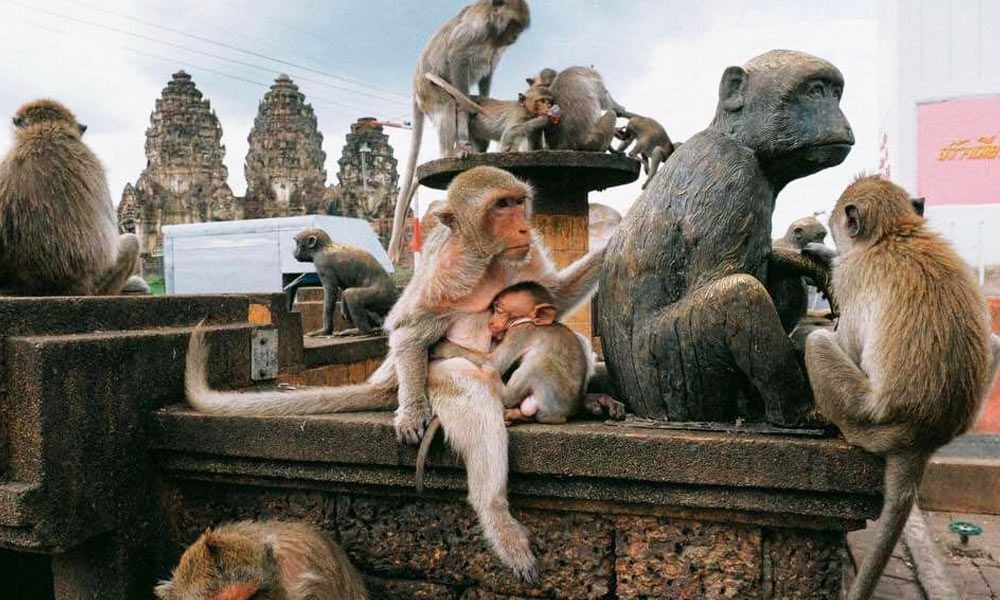
With the increase in tourists, the monkey population continued to grow due to the food they provided. From just about 3,000 monkeys in 2010, the number has soared to 10,000. As the monkey population increased, accompanying problems began to emerge.
Especially after the onset of COVID-19, with a decrease in tourists, the monkeys, facing a shortage of food, began to exhibit aggression. Incidents of them breaking into people’s homes to steal food became frequent. Attacks on residents walking down the streets also became more common.
During times of food scarcity, their aggression intensified, leaving residents anxious. The monkeys quickly turned from a source of amusement to a nuisance.
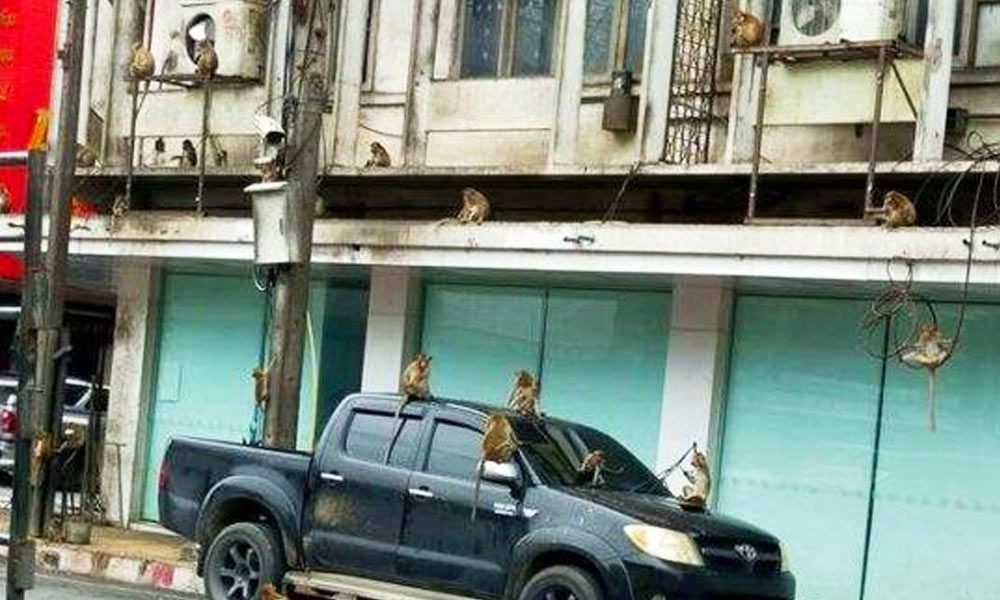
The monkeys roamed through the city, launching attacks in various urban areas. They rummaged through trash cans in search of food, causing a foul stench throughout the city. They seized personal belongings and took over cars, motorcycles, and more. The monkeys threatened residents’ livelihoods, establishing themselves as outlaws in the city.
They invaded shops, disrupting business operations and causing damage to the establishments. They didn’t hesitate to attack people even when customers were in the stores. They stole anything visible and showed no fear of humans.
One of the places severely affected by this situation is the Pingya Shopping Center, which suffered damages due to the monkeys. However, it has remained unsold for over two years. Consequently, real estate prices plummeted, and landlords had to reduce rents significantly.
The shopping center representative pleaded that investments had been halted due to the monkey problem. He said, “A Chinese investor considered investing but indefinitely postponed it upon seeing that the monkey problem remained unresolved.”
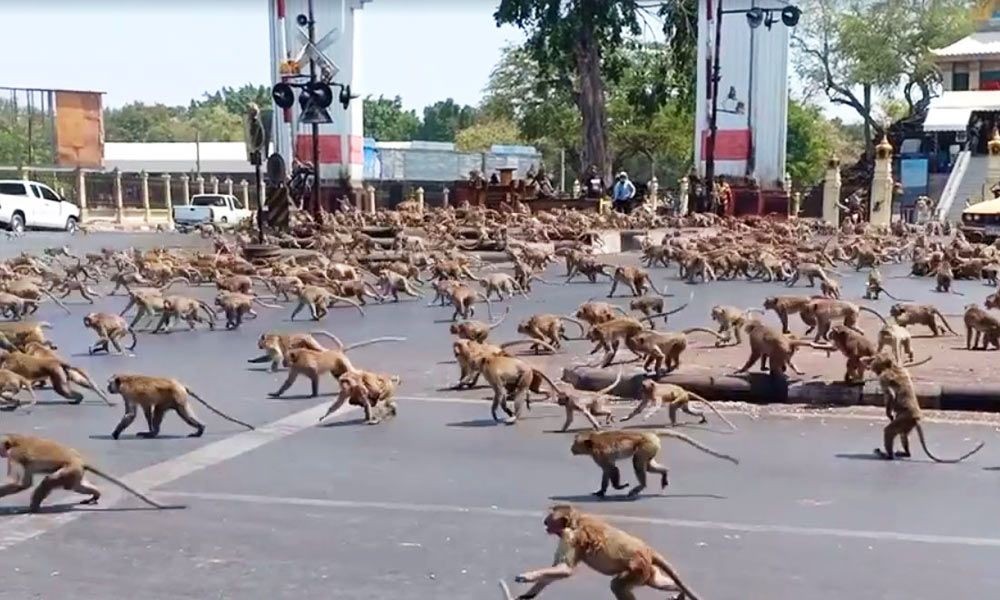
According to reports from local Thai media, the challenge in mitigating the monkey predicament is attributed to regulations governing building height limits and the imperative to preserve the integrity of cultural heritage edifices. Lopburi, renowned for its extensive historical significance within Thailand, boasts a legacy spanning over a millennium, adorned with numerous ancient landmarks. Adherence to these regulations has impeded proactive measures to address the monkey conundrum.
Over time, the primates’ behavior has exacerbated. They have been observed congregating in groups, instigating altercations on urban thoroughfares. In 2020, a notable incident unfolded in the heart of Lopburi, where hundreds of monkeys convened, engaging in vociferous skirmishes.
The influx of primates immobilized vehicular traffic, prompting occupants to sound their horns in a futile bid to quell the simian fracas. Hundreds of monkeys resulted in a blockade of roads, precipitating a significant disruption to traffic flow. Subsequently, the authorities sterilized approximately 500 monkeys.
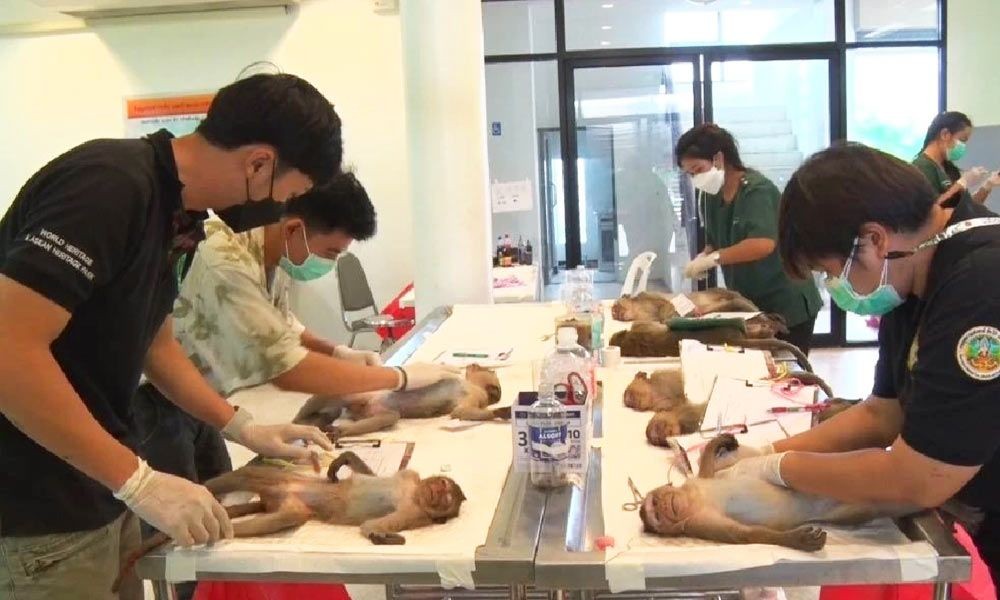
In response to the persistent issues caused by monkeys, the Thai government embarked on another large-scale sterilization campaign in 2022. After sterilizing 624 monkeys, they were released back into the wild. Despite the government’s efforts to regulate the population, the damages caused by the monkeys persisted.
Some critics argue that the reproductive rate of monkeys outpaces the rate of control measures, rendering them ineffective. Moreover, concerns about monkeypox infection have exacerbated the situation, particularly since the onset of the COVID-19 pandemic.
Due to fears of monkeypox infection, the number of tourists visiting Lopburi has significantly declined. Once a renowned tourist destination, it is now inundated with many monkeys.
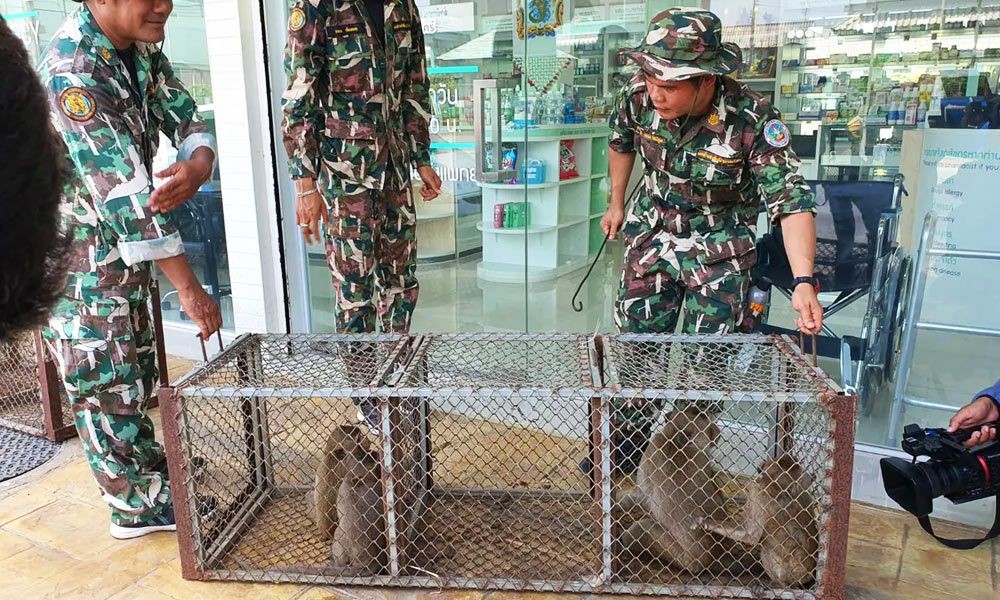
Ultimately, the Thai government has announced plans to carry out a monkey capture operation. Authorities have installed traps throughout the city to capture the monkeys. The captured monkeys are sorted and then sent to wildlife rescue centers to determine whether they require sterilization surgery. After undergoing health checks, they will be transferred to monkey parks.
The Thai Department of Natural Resources and Environment intends to compensate residents who have suffered damages from monkey attacks with approximately $2,700.











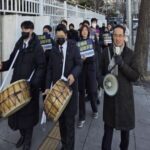



Most Commented